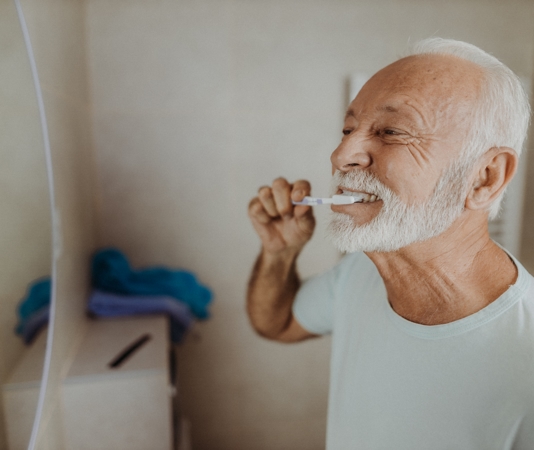Eating right is important at any age. However, as bodies age the ability to maintain a healthy diet can be challenged. “As people get older, they are doing less high-energy calorie-burning tasks,” said Dr. Valentina Remig, registered dietician and Chair Elect of the American Dietetic Association’s Healthy Aging Dietetic Practice Group. “They need fewer calories, but the same nutrients.”
Why Do Dietary Needs Change With Aging?
The American Dietetic Association estimates that women over age 50 need 1,600 to 1,800 calories per day and that older men need about 2,000 calories per day.
Experts note that there are a number of differences for the elderly population and those in need of senior care when it comes to eating a nourishing diet:
- As saliva production decreases, so does the ability to make stomach acid that easily digests our food. Dietary changes may be needed to ensure that nutrients are still being processed.
- Senses deteriorate with age, including the ability to taste and smell. This can mean overuse of salt and sugar in some diets since the flavors are not as easily detected. Too much salt and sugar can lead to other health problems such as type 2 diabetes.
- It’s important to keep a stable body weight and not over or under eat. If the caloric intake is not adjusted for the decreased physical activity, then people easily put on weight and this can lead to high blood pressure, diabetes and other illnesses. Not eating enough can lead to osteoporosis, memory loss and other conditions.
- Eating alone can be depressing for some people, so they might often forgo preparing or eating meals for one.
- Many medications can affect appetite and taste for certain foods. Always check with a medical professional to see if medicine may be affecting your diet.
Proper Hydration
Fluids help nutrients flow through the body and do their job. Hydration is an essential part of a healthy diet, and Dr. Remig points out that many older adults have a “decreased thirst mechanism” and may not realize that they are thirsty. In home caregivers, individuals and caregiver agencies should remind seniors to drink plenty of water with meals and throughout the day.
Proper Nutrition
Specific nutritional needs evolve as bodies age. For example, although 85-percent of adult bone mass is acquired by age 18 in girls and age 20 in boys, older adults need more calcium and Vitamin D in their diets to maintain healthy bones.
A healthy diet should include protein from eggs, dairy, fish, meats and poultry; whole grains and other carbohydrates such as fruits and vegetables; fiber; healthy fats that are found in fish, oil, nuts and foods fortified with omega-3 fatty acids.
Nutritional and Dietary Support
Many of the challenges to maintaining good nutritional habits for the elderly can be finding the right in home caregiver or caregiver agency to help with buying groceries and delivering groceries and meals.
“Being able to drive to the supermarket, to afford groceries every week, and having an appetite are the biggest challenges for the elderly population,” said Elizabeth Tscholl, a registered dietician at Cherry Creek Nutrition in Denver.
Other obstacles to a healthy diet for seniors can include illnesses such as Alzheimer’s. “People with Alzheimer’s forget what their favorite foods are, that it’s time to eat, and tend to like really sweet foods,” said Ms. Tscholl. Often the only way to get them to eat is to sweeten up foods, such as adding honey or brown sugar to a bowl or oatmeal with fruit and low-fat milk.
For additional information about nutritional guidelines, visit the American Dietetic Association’s website at www.eatright.org.




.1803151925550.jpg)
